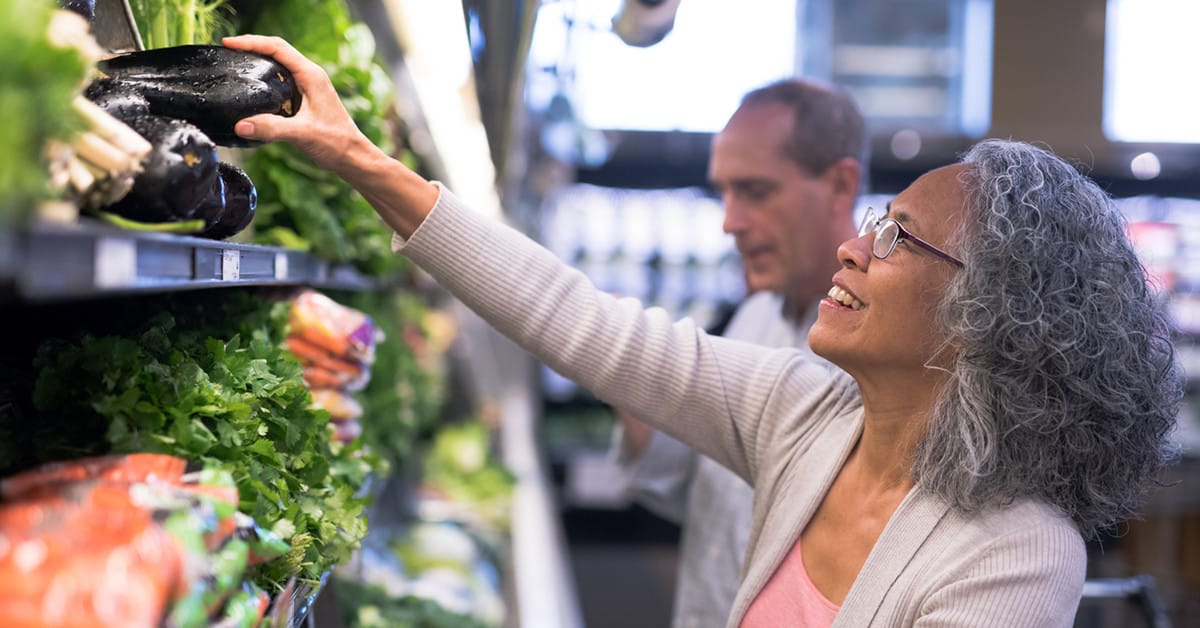
How To Decrease Your Risk for 5 Common Cancers
-
Updated: February 18, 2020
There’s no guaranteed way to prevent cancer. But there are things you can do to help reduce your risk. Especially when it comes to five common cancer types - breast, cervical, colorectal, lung, and melanoma.
Best of all, getting started may be easier than you think. Some of the most powerful preventive tools are simple lifestyle changes that you can start working on today. Here’s what you should know.
Steps for cancer prevention
Different cancers have different risk factors. But there are a few things that are proven to reduce cancer risk. These include:
- Quitting smoking. Around 30 percent of all cancer deaths in the U.S. are tied to cigarette smoking.
- Maintaining a healthy weight. After stopping smoking, keeping your body mass index within the healthy range is one of the most beneficial things you can do.
- Eating plenty of plants. Fruits, vegetables, whole grains, and beans contain phytochemicals that help protect against cell damage that can lead to cancer.
- Exercising. Get 150 minutes of moderate or 75 minutes of vigorous activity per week. It’ll help keep your weight in check and can regulate hormones involved in cancer growth.
More ways to lower your risk of cancer
Certain lifestyle factors seem to affect some cancers more than others. If you’re hoping to reduce your risk for a specific cancer type, here are some things you can do.
Reducing breast cancer risk
- Limit or avoid alcohol. Even light alcohol consumption on a regular basis is linked to a higher risk of this type of cancer.
- Consider breastfeeding if you have a baby. Breastfeeding for several months has shown potential to have a protective effect.
- Avoid hormone replacement therapy if possible. Discuss using non-hormonal methods to treat menopausal symptoms with your doctor. If you must use hormone replacement therapy, make sure to talk about the risks.
Reducing cervical cancer risk
- Get vaccinated. Human papillomavirus (HPV) raises the risk for cervical cancer. But the HPV vaccine can protect against strains of the virus that cause cervical cancer.
- Get screened. The Pap smear, or Pap test, and the HPV test can find precancerous changes in cervical cells that can be treated before they turn into invasive cancer.
- Use condoms. They can help you avoid sexually transmitted infections like HPV.
Reducing colorectal cancer risk
- Limit red and processed meats. Think beef, pork, lamb, hot dogs, sausage, and lunchmeats. Studies show that increased intake of these processed meats increases the risk of colorectal cancer. The more you eat, the greater the risk.
- Limit or avoid alcohol.
- Ask your physician about Non-Steroidal Anti-inflammatory Drugs (NSAIDs). Research has shown that people who regularly take this type of medication have a lower risk of colorectal cancer and polyps in some groups of people. But remember, this is a medication and it is important to talk with your doctor first. NSAIDs can cause serious side effects like stomach bleeding and may not be appropriate for some people with certain health histories.
Reducing lung cancer risk
- Steer clear of tobacco. If you smoke, do your best to quit smoking. It is also important to be mindful to not breathe in second-hand smoke when possible.
- Avoid cancer-causing chemicals. Radon gas is a known cause of lung cancer. Have your home tested, and get it treated if the levels are high. If you deal with other cancer-causing chemicals at work or elsewhere, find ways to steer clear of the chemicals as much as possible.
Reducing melanoma risk
- Minimize your sun exposure.Wear sunscreen daily and stay in the shade as much as you can.
- Avoid indoor tanning. Tanning beds and lamps expose you to harmful UV rays, just like the sun.
- Check for abnormal moles or growths regularly. Early detection is crucial. When detected early, most skin cancers can be treated effectively and are often curable. Tell your doctor right away if you spot anything unusual.
Why are regular cancer screenings important?
They can help catch cancer early, before symptoms start and when it’s often more easily treated. The key is knowing your individual risk factors—and which tests will be the most beneficial.
Nobody expects to get cancer, and there are times when a person gets cancer despite their best efforts to prevent it. But, it’s still important to try to decrease your risk whenever you can. Knowledge is power when it comes to taking action to reduce your risk.
Learn more about current screening guidelines for the most common cancer types.
